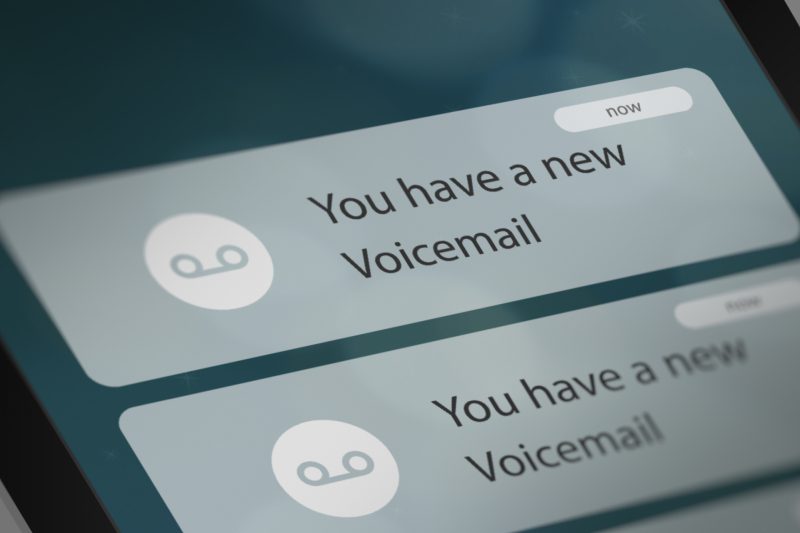Telemarketers and collection agencies have increased their use of ringless voicemail drops. This tactic has led to numerous complaints as many people see them as an invasion of their privacy. What does the law say about this technology?
What Are Ringless Voicemail Drops?
A ringless voicemail drop is an audio message that is placed into a telephone’s voicemail inbox without the phone actually ringing. There are two ways this can happen:
- The caller can dial a number provided by a telephone carrier company, which provides direct access to the phone’s voicemail box. Carriers don’t usually give these numbers out, however.
- The second way is to dial the same number twice simultaneously. The result of this is that one caller goes to voicemail, while the other is disconnected.
This tactic aims to load voicemail messages directly onto a prospect’s phone while bypassing the normal process of a phone call.
Is Ringless Voicemail Legal?
Voicemail drops may be annoying, but are they illegal? Ringless voicemail drops are essentially a method to get a message to a prospect’s phone “through the back door.” The technology it uses is called Adaptive Signaling, which causes the message to be sent directly to the voicemail service provider’s enhanced service platform. The message is not stored on the phone itself, but in the service provider’s voicemail server space. No consent is asked for attained before these messages are sent – and for this reason, the method is not legal.
What Does The TCPA Say about Ringless Voicemail?
The TCPA does not expressly address ringless voicemail messages. As a result, telemarketers and collection agencies use the tactic as a loophole. Ringless voicemail is essentially a way to get around the provisions of the Telephone Consumer Protection Act (TCPA). The act expressly prohibits “making any call…. using an automatic telephone dialing system or an artificial or pre-recorded voice…… to any telephone act number assigned to a paging service, cellular telephone service……. or any service, for which the called party is charged for the call.” Businesses that use ringless voicemail claim that their messages do not count as phone calls, and therefore are not subject to the provisions of the TCPA. However, recent cases, such as “Saunders vs. Dyck O’Neal,” have made it clear that these attempts cannot stand. The ruling, in that case, showed that ringless voicemail messages are effectively phone calls, regardless of whether the target’s phone rings or not. As such, they can and must be addressed as per the stipulations of the TCPA.
Can I Claim If I Have Received a Ringless Voicemail?
If you have been the target of ringless voicemail messages, you may have a strong case to take legal action against the caller, under the terms of the TCPA. Eligibility is assessed on a case-by-case basis, so you should speak to a TCPA lawyer and discuss the details.
About Shamis & Gentile, P.A.
Shamis & Gentile, P.A. provides outstanding legal services in Florida and New York. We distinguish ourselves because of our experience and resources, which we combine to handle any kind of case involving personal injury, personal injury protection, class actions/mass tort, and contract disputes. When you bring your case to Shamis & Gentile, P.A., you will always work with a seasoned attorney who has an excellent track record. We are progressive and trusted within the legal community and we are often called upon to settle cases that other law firms may not be able to handle on their own. If you have had experiences related to ringless voicemail drops and believe you may have reason to take legal action, contact us and book a consultation with a telemarketing lawyer.




